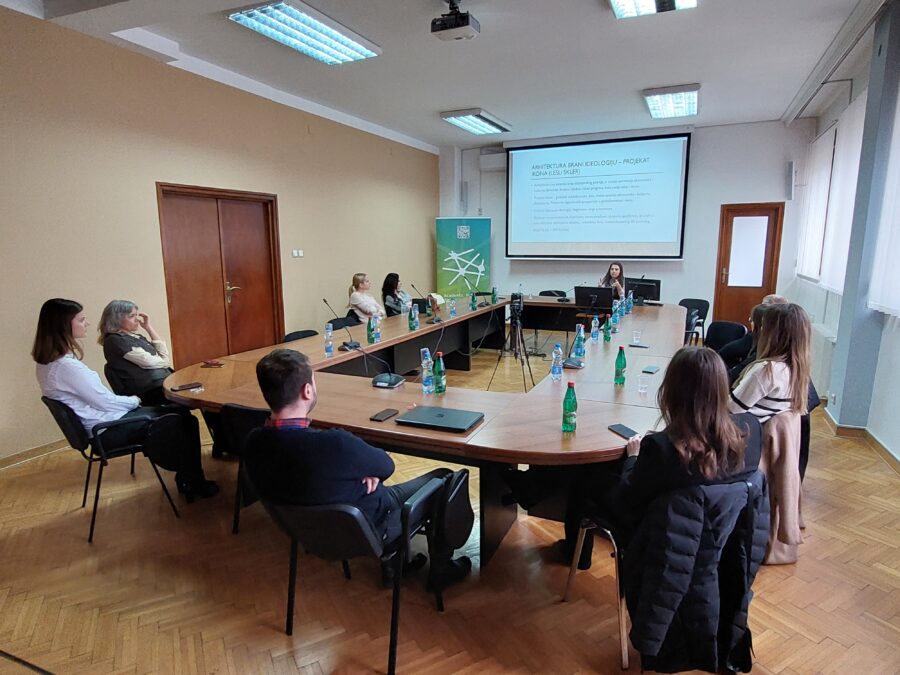As part of the cycle of lectures by new researchers at the Institute of Social Sciences, Nevena Novaković, a Researcher Trainee from the Centre for Sociological and Anthropological Research, held a lecture on February 21, 2024 in the Great Hall of the Institute of Social Sciences on the topic „Iron Law of Neoliberalism: Iconic Architecture and Museum Commercialization as an Effect of Global Cultural and Economic Shifts on the Local Context”.
The lecture was devoted to iconic architecture and the commercialization of museums. Architecture, as an aesthetic expression of an engineering feat, is a place where the economic and cultural dimensions of society meet. Museums represent only one aspect of this architecture. Inspired by Leslie Skler’s work on the icon project, the lecture discussed the cultural, political and economic impact of globalization on the business of contemporary museums. The icon project represents a global architectural work, a place where economic and cultural globalization converge, while simultaneously promoting capitalist prosperity in a globalized world. Namely, the standpoint of the lecture is that museums, as a contemporary place of intertwining of the economic and highly cultural spheres of human activity, become homogenous. Also in local (Serbian) contexts they „copy“ economic models from the countries of the world center, and by doing so apply neoliberal practice in every field of work. In that sense, it was pointed out that in most of contemporary museums, the position of curator is replaced by managers and marketing experts.
Choosing museums allows us to see on the one hand, influence of economy on the cultural field, and by that also the capilar spreading of the neoliberal logic in yet another social sphere. On the other hand, if the oranization of museum activity (now highly business) accepts contemporary global practices, that tells us a lot about the power and impact of globalizing processes on the local context. Lastly, the icon project shows that global, architectural, cultural and economic dimension is widely applyed in the work of all important institutions in their desperate adaptation to commercial logic.

